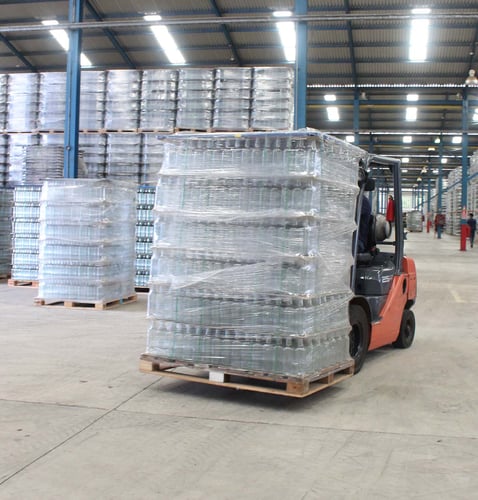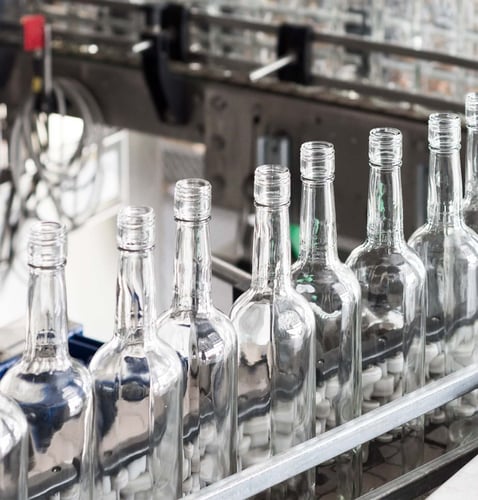What Should You Know About Glass Bottles?

Why Choose Glass?
The advantages of glass packaging and glass bottles are clear: it’s sustainable, it’s inert, it’s 100% recyclable, reused, and refillable. It’s also safe to keep food and beverages in, and it’s attractive; customers adore it.
Glass comes from nature
Glass is formed from naturally occurring elements present in nature. The alchemy of these constituents results in one solitary substance. No further material or chemical layers are required to finish it.
Glass is completely recyclable
Glass is completely recyclable and may be recycled indefinitely without losing its quality or purity. Glass recycling is a closed-loop method which generates no new trash nor byproducts. Glass is one of the few recyclable materials which can be recycled endlessly without losing its quality.
Glass containers are reusable (up to 40 years of life expectancy)
Reusing glass bottles has a net positive influence on the environment and it multiplies the sustainable worth of glass many times over. Returnable glass is an excellent option which the industry may provide in certain market scenarios.
Glass is beneficial to consumers’ health
Because glass is essentially inert and impermeable, it is the most stable container material available. There is no chance of toxic chemicals leaching into glass-packaged food or beverages. There is also no need for extra barriers or additives; a glass bottle or jar is made entirely of glass alone.
Why Should You Recycle Glass?
Glass can be recycled indefinitely without losing its quality or purity. Glass containers returned for recycling contribute to the manufacturing of new glass bottles and jars (which may include up to 95% recycled material), as well as fiberglass. Recycling glass has significant environmental benefits as well: it conserves raw resources, reduces energy consumption, and reduces CO2 emissions (among these following advantages):
Should you recycle glass?
Recycling glass is beneficial to the environment
Glass bottles discarded in landfills can take up to a million years to degrade. In comparison, a recycled glass bottle takes as little as 30 days to leave your kitchen recycling bin and then emerge as a new glass container on a store shelf.
Recycling glass is a sustainable practice
Glass containers are 100% recyclable, which means they can be recycled again without compromising the glass’s purity or quality.
Recycling glass is efficient
All-new glass containers are made mostly of recovered glass from glass recycling. A typical glass container contains up to 70% recycled glass. According to industry estimates, around 80% of recycled glass ultimately becomes new glass containers.
Recycling glass helps conserve natural resources
Each ton of recycled glass saves over a ton of raw resources used to manufacture new glass, including 1,300 pounds of sand, 410 pounds of soda ash and 380 pounds of limestone.
Recycling glass conserves energy
Making new glass involves heating sand and other materials to 2,600 degrees Fahrenheit, consuming a great deal of energy, and producing significant industrial pollutants including greenhouse gases. Crushing the glass into a product called “cullet” is one of the first processes in glass recycling. Because cullet melts at a significantly lower temperature than raw materials, manufacturing recycled glass goods requires 40% less energy than new glass.
Recycled glass is versatile
Since glass containers are made of natural and stable components such as sand and limestone, they have a very low rate of chemical interaction with their contents. Consequently, the glass can be securely reused in a variety of applications, including refillable water bottles. Additionally, the glass can be used to construct fences and walls. Apart from being the principal constituent in new glass containers, recycled glass has a variety of additional commercial applications, ranging from creating beautiful tiles and landscaping material to the reconstruction of antiquated beaches.
Recycling glass is easy
It’s a straightforward environmental procedure since glass is one of the most easily recycled materials. For one thing, practically all curbside recycling programs and municipal recycling facilities accept glass. Most consumers simply need to bring their recycling bin to the curb or drop off their empty glass containers at a local collection site to recycle glass bottles and jars. Occasionally, regulations dictate that various colored glasses must be separated to ensure cullet homogeneity.
Want to know more about glass packaging and recycling? Speak with your friendly experts at BPS Glass. Visit us online or call us in South Florida at +1 470 864 3065.



